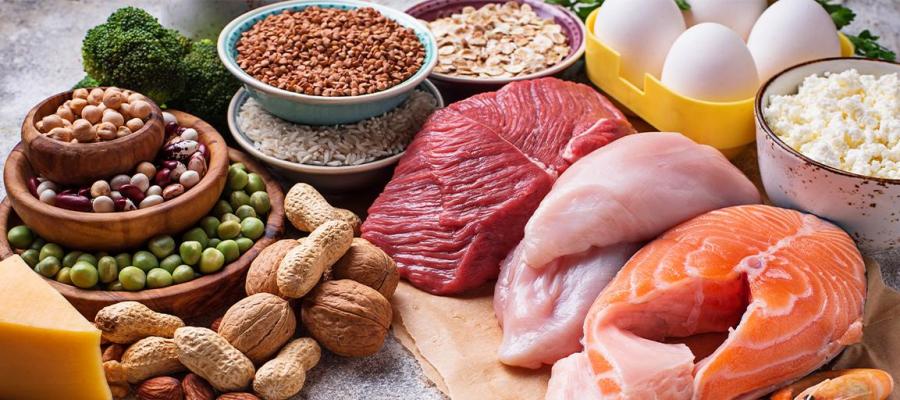What is protein?
Protein is an essential building block of the body, containing 20 different constituents, known as amino acids. These amino acids are split into 9 essential amino acids and 11 non-essential amino acids. The essential amino acids are not synthesised in the body and so must be provided in the diet. The non-essential amino acids are synthesised from another substance or another amino acid.
Why is protein important?
Building and maintaining muscle mass.
Protein intake needs to be sufficiently high to maintain muscle mass. If intake is too low, body muscle will be broken down and used to synthesise other forms of protein needed by the body. This creates a vicious circle, because muscle burns a lot of energy. When muscle mass is reduced less energy is burned, which means it takes longer to reduce body fat and weight.
Adequate protein intake together with exercise act on muscle, causing it to grow faster. In fact, this combination not only stimulates the growth of ‘fat-free’ mass or muscle, it also leads to a reduction in fat mass. This winning combination has been proven in various studies [1], [2].
How to identify protein deficiency
Serious protein deficiency can be identified by a blood protein assay (albumin).
What is the recommended intake?
For adults the recommended daily intake is 0.8-1.6g/kg body weight, with even 2g/kg body weight per day being considered safe over a long period [1]. This is rounded to at least 60g per day for bariatric patients.
When exercising, protein intake is especially recommended post-exercise. This is important to provide the very best support for muscle building and repair immediately after the effort and the next day. A generally good protein intake is clearly the optimal situation for muscle maintenance and growth.
Where do I get my protein from?
Chicken meat and fish are a rich source of protein. Eggs, tofu, milk, cheese and nuts also contain protein, albeit not as much. Animal sources have good biological value, which means they provide all amino acids. Vegetable sources don’t provide all amino acids, so they have to varied. Protein can also be complemented with whey supplements, providing a large quantity of high-quality amino acids, which among other things is important for muscle building. The whey protein isolate is preferred, as it is low in lactose and fat.
>> Read more about the advantages of the pure whey protein isolate in Bariatric Advantage® Whey here
Tips for good intake of whey supplements
- Go for a naturally low-calorie power based on very pure whey protein isolate.
- Ask your dietician how much protein powder you need to achieve your recommended daily intake.
Tips for good intake of Bariatric Advantage® Whey
- Dissolve the power in water, milk, juice, a smoothie or mix it into a meal.
- Dissolve in a cold drink where possible.
- It is safe to dissolve in hot drinks, but it may form lumps.
- Preparations (like soup) can be frozen.
- The powder can be dissolved in pancake, cake and muffin batter and even in bread dough.
Looking for low-calorie dishes?
>> Crispy tuna rolls
>> Potato gratin
>> Cod en papillote
>> Stuffed aubergines
>> Banana and kiwi smoothie
>> Broccoli soup with smoked trout
Need more inspiration?
Keep an eye on our blog, where we regularly post new recipes and tips.









